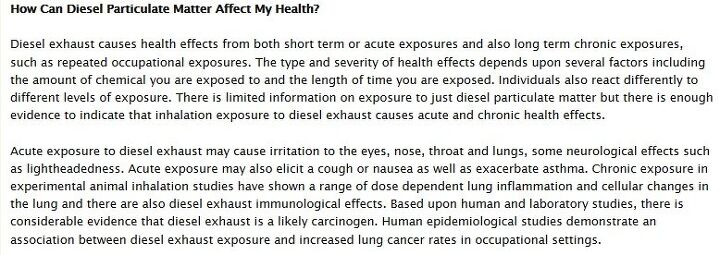No Fixed Abode: Stupid Paris Stupid Does.

As fate would have it, I was twenty-four years old before I saw Los Angeles for the first time. Prior to that, I knew nothing about SoCal besides what I could read in BMX Action! and see in movies. One thing about LA that I remembered from growing up in the Seventies was that LA was the reason for “smog laws” and the 165-horsepower Corvette and the infamous thermal-reactor Bimmers and the many evils of the C.A.R.B. I think I half-expected to see the city blanketed in fumes like the cover of Modern Vampires Of The City.
You probably know what a ridiculous half-expectation that was. The battle for clean air in California was fought, and won, long before I got my driver’s license. The number of cars operating in Los Angeles has more than doubled since my youth, but ozone in the air is just forty percent of what it was. The modern automobile is virtually an air scrubber; there’s less poison coming out of the tailpipe than there is entering the intake. The miracle that made this situation possible — the combination of platinum catalysts and truly effective electronic engine control — has also ushered in the true golden age of automotive performance.
Unless you live in France, of course, where the cars are slower than dogshit, the air teems with chemicals known to the state of California to cause cancer, and the capital city is reduced to alternate-day driving bans just to keep a black cloud of poison off the shoulder of the Eiffel Tower. How do you explain this? How is it that degenerate, low-riding, poke-and-stretch, Topanga-Canyon-carving Los Angeles breathes fresh air while the beret-clad heads culturally progressive superiors in blessed France shake from coughing?
Well, we all know the answer: Religion.
The efforts had come after a measure of fine particulates in Paris peaked at noon on March 14 at 110 micrograms per cubic meter, exceeding the level in Beijing, obscuring the Eiffel Tower and sending a hazy dome over the city. The comparable reading at the same time for particulates of 2.5 micrometers or smaller in the Chinese capital was 89, according to Air Quality Index China. It was 172 in Shanghai.
The government imposed a ban on automobiles with license plates ending in even numbers from the roads of the French capital and 22 towns surrounding it. Mass transit and the city’s bicycle and car-sharing programs, Velib’ and Autolib’, were free for more than three days. Speed limits were lowered and suburbs offered free street parking. All the measures will end tonight, the government said.
Now, I realize that TTAC had kind of a Tim-Owens-in-Judas-Priest year a while back where we all had to pretend that China was a sort of magical wonderland where the women were beautiful, property rights were absolute, and millions of cheerful workers skipped to work every day with songs in their incomparably-educated hearts, but this is 2015 and let’s be real: any time Bloomberg is non-ironically comparing the state of your city’s environment with Beijing or Shanghai, you got problems, my friend. Why is Paris experiencing crippling air-quality issues related to particulates when California has the problem well in hand?
The short answer is: France loves diesels. Which begs the question: Why? Diesel, as a fuel, is a terrible, sticky, slippery, non-aromatic mess. I realize that TTAC has more than its fair share of diesel evangelists who have somehow managed to convince themselves that these diesel disadvantages don’t exist or don’t matter, but they are in the decided minority. After winning the Cannonball One Lap of America (Alt Fuel Class) in 2006 behind the wheel of a brand-new E300 CDI, I swore to myself that I would never knowingly operate a diesel vehicle again if I had any other option. I despise diesel fuel. Sure, I respect your right to get excited about it, the same way I hope you respect my right to think that more expensive kinds of wood make a guitar sound better, but in both cases we’re being willfully contrary and stupid.
Petrol is the queen of fuels. It evaporates easily, it can be used to wash your hands (although I don’t recommend it, hand-washing was a pre-automotive use of gasoline), it burns well, it allows 600cc motorcycles to rev to 15,000 RPM and Ferrari V8s to more than half of that, and if you spill some on a street or racetrack it’s not catastrophic to everybody around you as long as you aren’t also holding a lit match. Petrol is awesome and the entire world agrees. I know this because somebody else has already performed a detailed statistical analysis showing that diesel fuel has almost no consumer interest anywhere it has no tax advantage.
The use of diesel fuel for passenger cars in Europe has risen from under ten percent in 1980 to over 50 percent in 2005, and higher that today. France is on the leading edge of this, with more than 75 percent of private cars powered by diesel. Why? As that “somebody”, Joshua Linn (no relation to the guy whose Adrenalinn III stompbox gave us the brilliant arpeggiation on John Mayer’s “Bigger Than My Body”) demonstrates, the change is entirely due to tax structures that favor diesel. Fuel economy, which is higher for diesel vehicles, isn’t the reason. Longevity isn’t the reason. Higher purchase prices aren’t the reason — sorry, Mr. Veblen. It’s the taxes, stupid.
Take away diesel’s tax advantage, and buyers return to gasoline in droves. A Europe without diesel-friendly tax policies would closely resemble the United States in fuel choice. While this would dismay refiners who have grown used to being able to sell diesel to one side of the Atlantic and petrol to the other, it would have significant and lasting effects on particulate pollution.
Particulates are nasty things, and the health impact of breathing in diesel particulates has been at least suspected by the EPA for the past forty years. In the cause of reducing particulate-related impact on human health, in particular the known carcinogenic effects, the EPA has imposed stricter regulations than Europe on both commercial and private diesels. While the trucking industry wrote the equivalent of a teenaged girl’s cry-for-help suicide letter when the last batch of regulations took effect, the trucks are still rolling and the air is cleaner as a result.
All petroleum-based fuels are bad for human beings, but diesel is worse and the science, as they say, is settled on this topic. So why have European governments, which are supposed to be more concerned with the health and welfare of their citizens than we are here in the Evil Empire, traditionally offered a massive helping hand to diesel? Where’s the sense in that? Why aren’t all the progressives who become positively enraged by America’s subsidies to the corn/HFCS juggernaut equally upset that Europe is offering a tax benefit to a fuel that creates smog and causes cancer?
I can’t lie: The historical reasons for Europe’s decision to offer tax breaks to diesel drivers are beyond my knowledge and/or understanding. After reading maybe a hundred pages on the subject today, I’m not a whit better-informed or smarter about it. What I can tell you is while the reasons for diesel tax subsidies in the past are murky, the reasons for modern diesel tax subsidies are crystal clear. For well over a decade, tax structures in Britain and elsewhere favored diesel automobiles because they tend to emit less CO2 per mile. Those policies are being reversed, as even France admits its mistake, but the long tail of CO2-centric decision-making is going to haunt European countries as long as the cars purchased under those policies remain on the roads.
Even if you accept that the scientific consensus on anthropogenic global warming (AGW) is equal in value and precision to the demonstrated medical science regarding the effects of particulates on human health, you have to admit that the primary threat to the environment comes from power generation, not automobiles, and certainly not European automobiles, which are already more efficient than their counterparts in many other markets. Those wonderful folks in China are burning coal at more than twice the combined rate of the US and Europe and that gap is growing every day. They’re also attempting to motorize their population. Viewed in that cold, factual light, the CO2 to be saved by forcing particulates into the lungs of every man, woman, and child in the EU amounts to little more than Natalie Merchant’s “tear in a salted sea”. Statistically speaking, there are going to be tens or even hundreds of thousands of European citizens who won’t live to see the oceans rise because they’ll be dead from particulate inhalation.
I don’t consider myself to be a math whiz so I have to assume that the European politicians had access to all the same numbers that I have when they made their decisions. They’re admitting fault now, but that doesn’t clarify their reasons for making those mistakes in the first place. Lacking any sort of tell-all biography on the part of a Brussels bureaucrat, I have to think that the whole thing stemmed from a mindset that privileges humanity over humans.
Those of us who were born and raised in the United States tend to take it for granted that the individual citizen’s rights often take priority over the rights of the citizenry in general — look at all the controversy over eminent-domains laws if you have any doubt about that. Very few of us would willingly accept death-by-cancer for us or our kids as a fair tradeoff for being minor cogs in a distant and dimly realized vision of the future. We don’t believe in the long term vision, particularly when it includes major sacrifices to make that long term vision happen. The idea of the thousand-year-Reich has no currency in the land of the rent-to-own television. We call it what it is: religion without God, an ersatz piety that places some vague concept of humanity in the place of the imaginary Almighty but demands no less fealty from its followers than the cruelest prehistoric deity.
The average European on the street probably feels about the same way on that topic, but he lives in a political environment where questioning the idea of getting lung cancer so China has fractionally more CO2 overhead for coal factories is considered “reactionary” or “racist” or “UKIP”. The spice must flow, you see — and for “spice” just read “endless stream of cheap products made with Chinese electricity to increase the already-boundless profits of European one-percenter intellectual-property holders.” And even when the failure of these policies is writ large in the sky above Paris, the only solutions that come to the minds of the mandarins involve further humiliation of the bourgeoisie: travel restrictions, mandatory public transportation, scrapping private property by force. For having the temerity to have done what he was told to do in 2010 — buy diesel cars — today’s motorist will be denied the freedom to enter Paris behind the wheel of that same diesel car. He trusted the government to have an adequate command of the science and the facts of the matter and that trust, sadly, was misplaced.
Can this situation be fixed? Yes. It can be fixed the free-market way — by the removal of diesel subsidies that is already happening. That should lead to cleaner skies in the year 2025. If the Paris crowd wants cleaner air in the near future without arbitrary restrictions on movement and the outrageous secondary market that will accompany them (think of the market for “matched pairs” of even and odd license plates) then there will have to be some sort of unilateral action to match the sort of unilateral action that got them in this fix.
I suggest the following: Encourage the immediate production of a small-petrol-engined Renault or Citroen. Something like the old Twingo, only with a modern 600cc engine. Stop-start, all that. Make a car that offers the maximum possible reduction of both CO2 and fuel consumption. Then offer tax credits in the full amount of the purchase price for anybody who takes their currently registered diesel car to the crusher and replaces it with one of the new cars. This will encourage people to junk the older and less valuable diesels immediately. Leave the program in place for five years.
Such a program would create jobs, it would encourage commerce, it would get the diesels off the road, it would serve as a model program for low-capacity minicars in Europe. The only things that would be required would be a willingness on the part of the French legislators to admit blame for the current situation and a further willingness to engage in some austerity measures to pay for the program. It would be a breath of fresh air, to be sure; but trust me, if you want a breath of fresh air, Paris ain’t the place to be right now.

More by Jack Baruth
Latest Car Reviews
Read moreLatest Product Reviews
Read moreRecent Comments
- Teddyc73 Oh good lord here we go again criticizing Cadillac for alphanumeric names. It's the same old tired ridiculous argument, and it makes absolutely no sense. Explain to me why alphanumeric names are fine for every other luxury brand....except Cadillac. What young well-off buyer is walking around thinking "Wow, Cadillac is a luxury brand but I thought they had interesting names?" No one. Cadillac's designations don't make sense? And other brands do? Come on.
- Flashindapan Emergency mid year refresh of all Cadillac models by graphing on plastic fenders and making them larger than anything from Stellantis or Ford.
- Bd2 Eh, the Dollar has held up well against most other currencies and the IRA is actually investing in critical industries, unlike the $6 Trillion in pandemic relief/stimulus which was just a cash giveaway (also rife with fraud).What Matt doesn't mention is that the price of fuel (particularly diesel) is higher relative to the price of oil due to US oil producers exporting records amount of oil and refiners exporting records amount of fuel. US refiners switched more and more production to diesel fuel, which lowers the supply of gas here (inflating prices). But shouldn't that mean low prices for diesel?Nope, as refiners are just exporting the diesel overseas, including to Mexico.
- Jor65756038 As owner of an Opel Ampera/Chevrolet Volt and a 1979 Chevy Malibu, I will certainly not buy trash like the Bolt or any SUV or crossover. If GM doesn´t offer a sedan, then I will buy german, sweedish, italian, asian, Tesla or whoever offers me a sedan. Not everybody like SUV´s or crossovers or is willing to buy one no matter what.
- Bd2 While Hyundai has enough models that offer a hybrid variant, problem has been inadequate supply, so this should help address that.In particular, US production of PHEVs will make them eligible for the tax credit.


































Comments
Join the conversation
I do read that some think that diesels are the problem. The problem is old diesels and new GDI engines. Yes, it seems to me that maybe the wrong type of engine is targeted here. Diesel vs gasoline is a great debating topic. This would make an interesting discussion topic for TTAC.
Thanks Jack. A wonderful read. Bonus points for picking on Frenchies. While I believe AGW is real and dangerous, I always say long term plans that don't include short term survival aren't plans. Off to read the comments, I'll bet they're ripe.